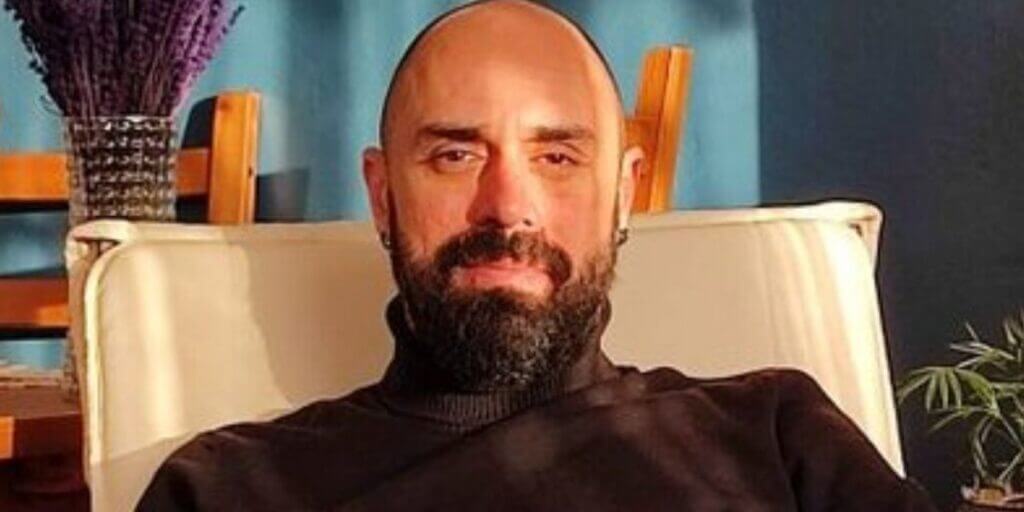A Turkish academic has been detained due to his comments on social media criticizing the way the government has been handling search and rescue efforts following two powerful earthquakes that hit the country’s Southeast on Monday, the Birgün daily reported.
Özgün Emre Koç, a political scientist and author, tweeted on Tuesday that he was being taken to the İstanbul Police Station for questioning.
He is facing charges under Article 216 of the Turkish Penal Code (TCK) on allegations of fomenting enmity and hatred among the people.
Koç’s wife tweeted later on Tuesday that he would be held in police custody until Wednesday morning and then would be taken to the Kartal Courthouse to testify to a prosecutor.
Turkey’s most powerful earthquake in almost 100 years struck near the city of Gaziantep, which is home to around 2 million people and on the border with Syria, on Monday, killing more than 11,000 people in Turkey and neighboring Syria.
The 7.8-magnitude earthquake, which struck as people were still sleeping, was followed by dozens of aftershocks, including a 7.5-magnitude temblor that jolted the region in the middle of search and rescue operations the same day.
In his tweets, Koç criticized the government for not mobilizing the Turkish military to take part in the search and rescue efforts. He said there are thousands of soldiers in the military barracks in Hatay, one of the provinces worst affected by the quakes, and that these troops could help people.
“You have not done this. You are a traitor,” he said in remarks targeting the government.
The Justice and Development Party (AKP) government is mainly accused of failing to mobilize enough people for the effort and a lack of coordination among the teams, which resulted in civilians in some regions trying to pull their loved ones from under the rubble themselves and finding them frozen to death although they sustained no critical injuries when the building collapsed.
Many social media users also complained about the lack of basic necessities, such as water, blankets and tents as well as medical supplies.
Government officials reject the criticism, saying everything is under control and that the necessary steps are being taken to rescue the survivors and provide other victims with basic necessities.
In his tweets, the academic also criticized President Recep Tayyip Erdoğan who on Tuesday in his first address to the nation following the powerful earthquakes threatened those spreading “lies” about the earthquake.
Erdoğan said he was “keeping note of all the lies and distortions and would open his notebook when the time comes.”
The president’s remarks have been interpreted by many as an attempt to silence criticism against his government due to what they say is its poor response to the disaster.
Koç criticized Erdoğan for not demanding an accounting from the building contractors whose substandard construction led to the collapse of so many buildings, and hence the deaths in the earthquake, but for threatening people over their tweets.
As the country grapples with the repercussions of the powerful earthquakes, Turkey’s Presidential Communications Director Fahrettin Altun announced that an app called the “Disinformation Reporting Service” was available for download on both iOS and Android devices.
“You can download our application to your phone and report the news produced and spread about the earthquake disaster that you think is suspicious/fake,” Altun said.
1 person arrested over quake post
Meanwhile, Turkish police announced Tuesday that one of seven people who were detained over “provocative” social media posts following the earthquake was arrested, the Kısa Dalga news website reported.
The police said they had identified 135 social media users who shared “provocative posts aiming to create fear and panic.”
Sosyal medya platformlarında depreme ilişkin provokatif paylaşımlarda bulunan 135 hesap yöneticisi tespit edildi. 7 şahıs gözaltına alındı, 1'i tutuklandı.
Yardımsever vatandaşlarımızı suistimal etmek isteyen internet sitelerinin kapatılması sağlandı. pic.twitter.com/l7G0EH03dK— Türk Polis Teşkilatı (@EmniyetGM) February 7, 2023
They added that seven out of the 135 people were detained and one of them was arrested on the instructions of a chief public prosecutor.
The police further said they shut down six websites for “phishing scams,” took the necessary action regarding four social media accounts, whose owners asked for money by using the name of official institutions, and froze three cryptocurrency wallets created to con people into giving their money under the name of “earthquake aid.”
Turkish social media has been filled with posts by people who complain about a lack of search and rescue efforts in their area, particularly in Hatay province.
The police also appeared to address such claims on Tuesday, saying, “The address and location information of citizens who seek help is immediately ascertained and coordination is established.”
Turkish authorities have in the last few years cracked down on social media posts, especially those considered to support “terrorism,” but this has led to accusations that freedom of expression has been curtailed.


